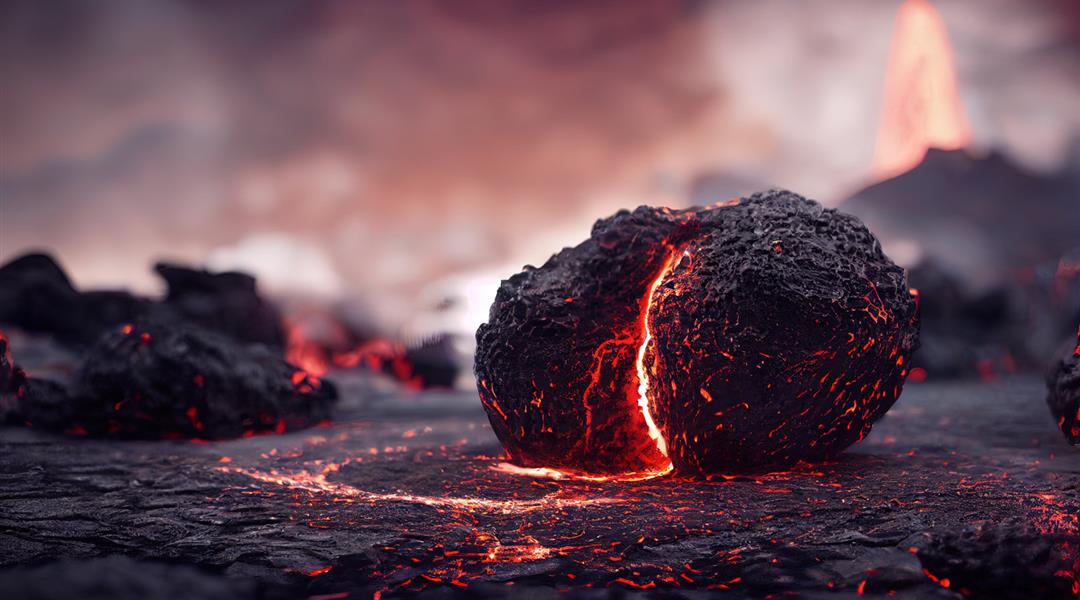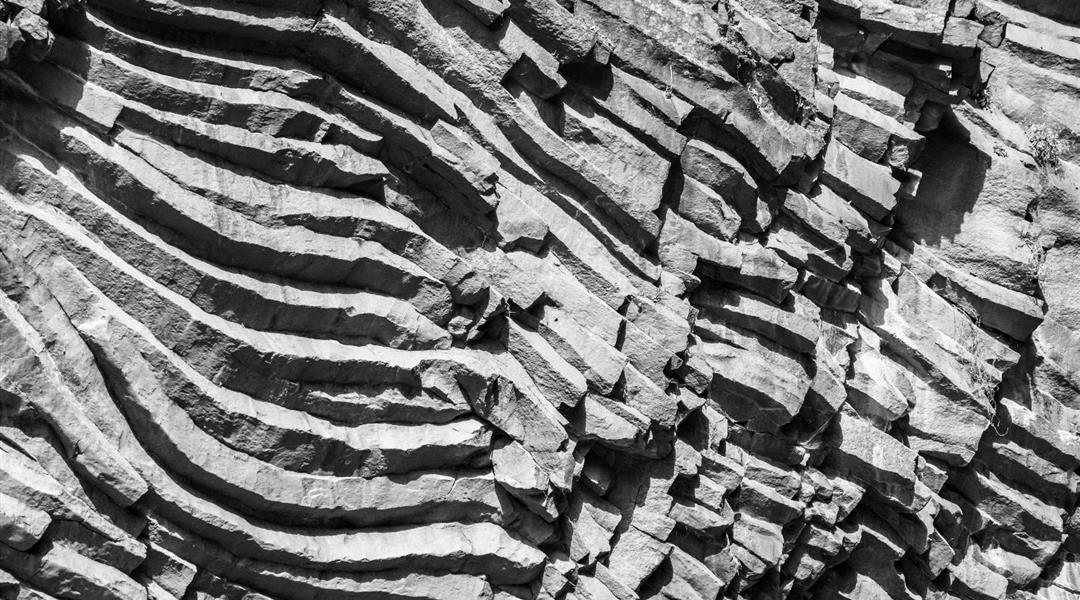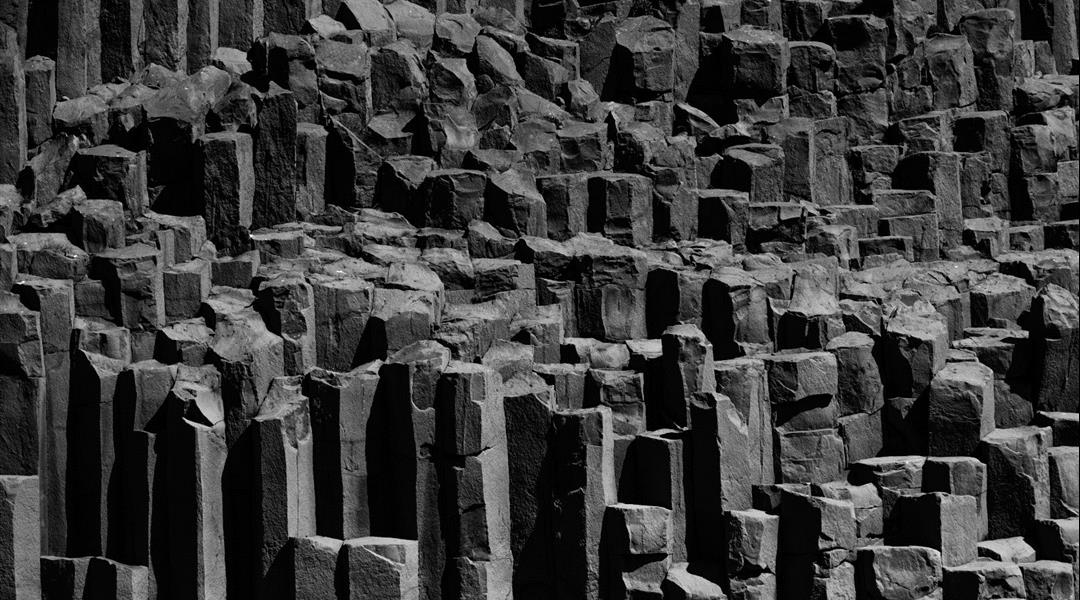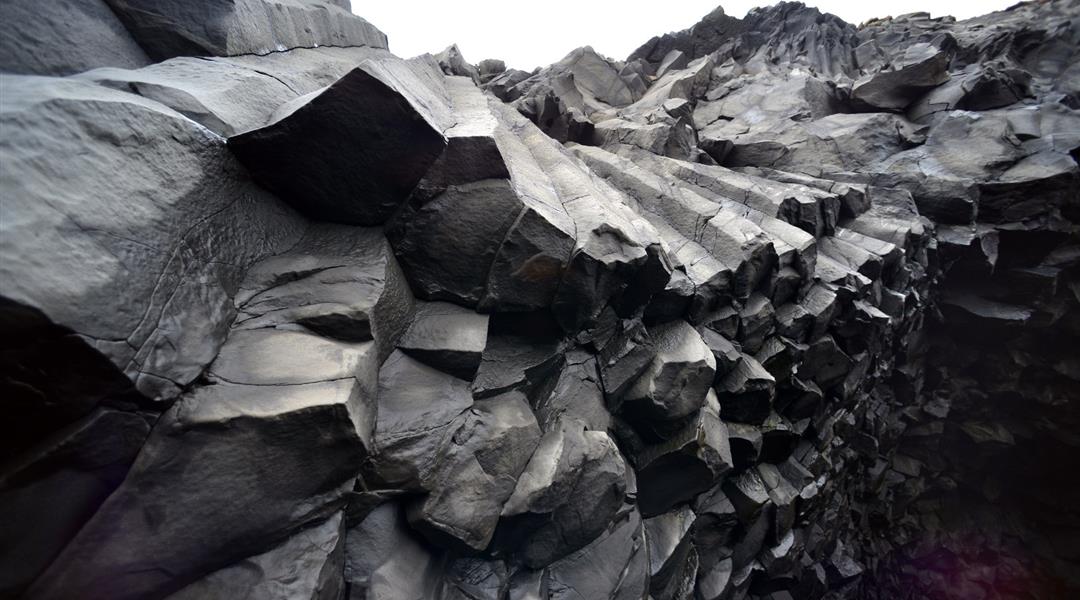Basalt
Basalt Fiber
Basalt, a volcanic rock formed From the rapid cooling of lava basaltic, represents one of the most common types of igneous rocks, found in many parts of the world. Its distinctive fine-grained texture and generally dark color, ranging from gray to black, characterize it. Composed mainly of minerals such as plagioclase feldspar, pyroxene and olivine, basalt provides a rich and robust geological foundation. Despite the great availability of this rock in the mines and quarries around the world, only a dozen of them presents a basalt whose composition has been analyzed and qualified as suitable for the production of thin continuous filaments.
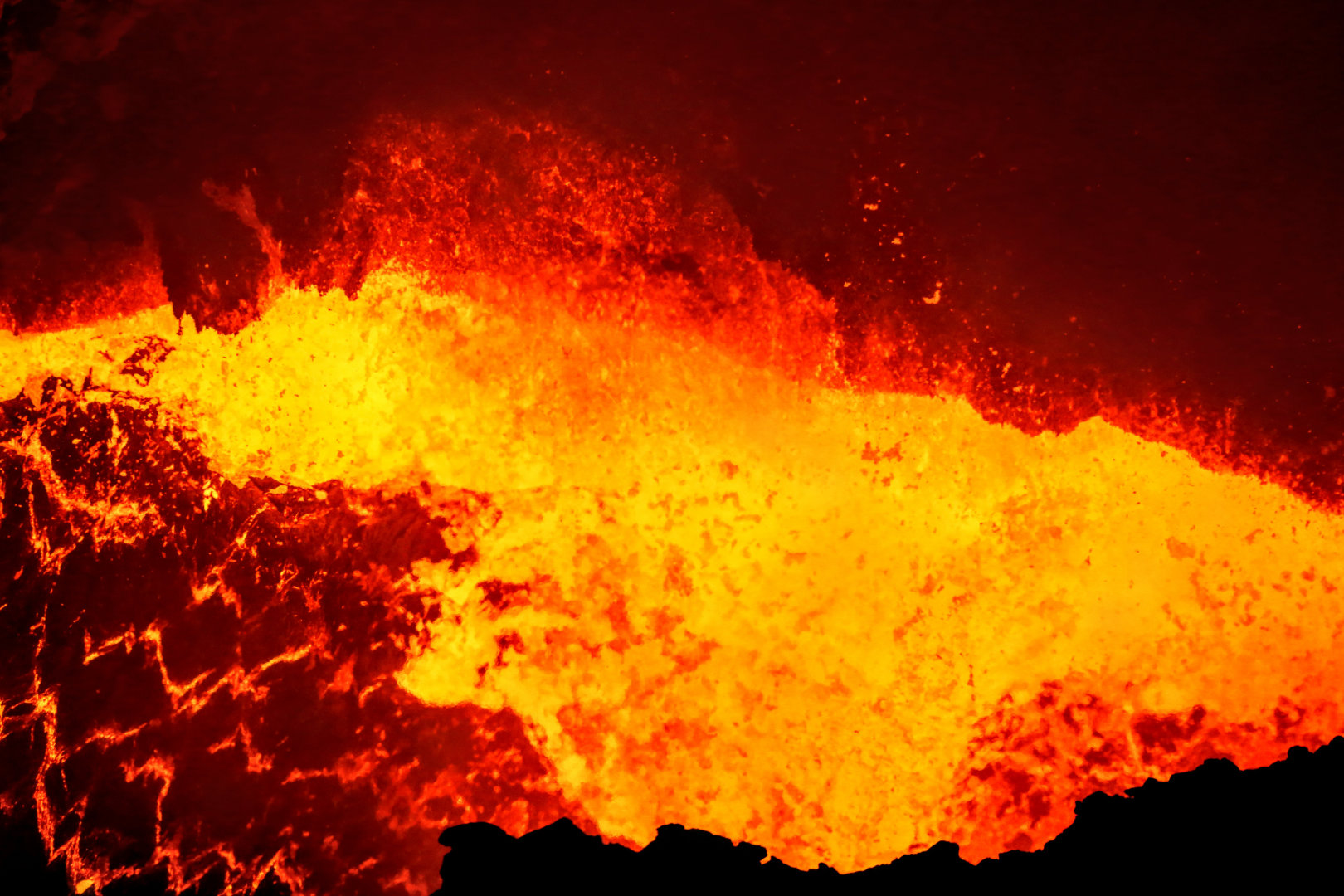
- Sustainability: it is a natural organic material, inherently sustainable.
- High tensile strength: superior to that of glass fiber, steel, copper, aramid and polypropylene.
- Excellent thermal stability: maintains stable properties from -260 degrees up to 650 degrees, surpassing any other competing fiber.
- High insulating capacity: fire-resistant material with excellent heat retention capacity.
- Excellent resistance to acids and alkali: Completely corrosion-resistant, preferred over steel, copper and glass, for applications in humid environments or near water.
- Non-magnetic and non-conductive.
- Not combustible.
- Non-toxic.
- Non-allergenic.
| BASALT | GLASS | CARBON | |
|---|---|---|---|
| Sustainability and environmental impact. | High sustainability-low impact | Low sustainability-high impact | Low sustainability-high impact |
| Greenhouse gas dispersion | NO, 0% dispersion from raw material to finished product | Yes, about 30-40% of the gross weight of the raw material disperses into gas and dust | |
| Power and water consumption during the production process | LOW | HIGH | HIGH |
| Tensile strength (MPa) | 4000-4900 | 3400-4500 | |
| Heat resistance (maximum use temperature) | 982°C | 650°C | |
| Melting point | 1450°C | 1120°C | |
| Thermal stability (temperature at which you can work) | From -260°C to 820°C | 480°C | |
| Fire resistance | 1200°C for 2 hours maintains 90% of characteristics | 1000°C for 2 hours partially molten | |
| Insulation properties (thermal) W/m K | 0.031-0.038 | 0.034-0.04 | |
| Corrosion resistance | Inalterable | Alterable | Alterable |
| Chemical resistance (acids) | Inalterable - weight loss= -7.1% | Alterable-weight loss= -38.5% | |
| Chemical Resistance (alkali) | Inalterable - weight loss= -0.15% | Alterable-weight loss= -4.5% | |
| Resistance in wet environments | Inalterable= 0% water absorption | Alterable | |
| Magnetic resistance (not conductivity) | Non-conductive | Conductive | |
| Durability | High durability | Medium durability | |
| Density (kg/m3) | 2600-2800 | 2500-2600 | |
| Last deformation | 3%-3,5% | 4%-5% | |
| Residual resistance (max temperature) | 600°C | 200°C | |
| Cost efficiency |
The applications of basalt
Basalt is used in the production of composite materials, in industrial thermal insulation
and in the production of fire-resistant fabrics.
In the construction industry, it plays a crucial role as reinforcement for concrete,
in road paving and seismic structures. Its versatile properties also make it the material
of choice for various other applications.

Basalt and its Positive Impacts in terms of Sustainability and ESG
Basalt, a natural volcanic rock, is emerging as a crucial resource in the landscape of sustainability and corporate ESG (Environmental, Social and Governance) strategy. This versatile material offers multiple benefits that extend beyond its physical characteristics.
DISCOVER MORE